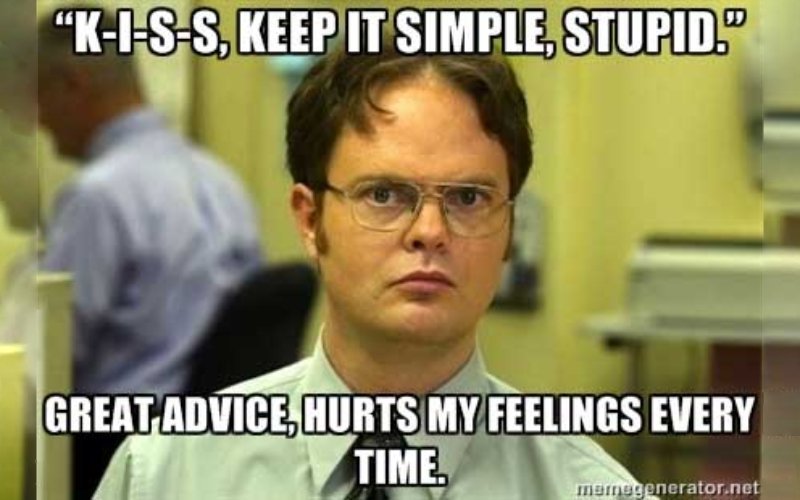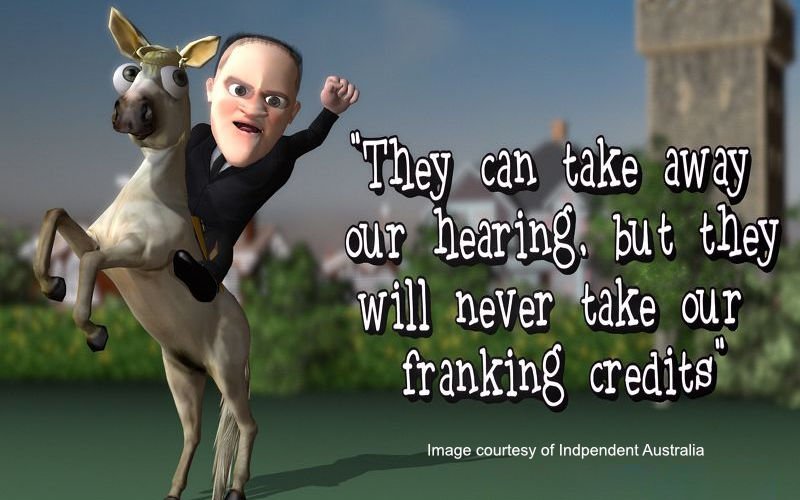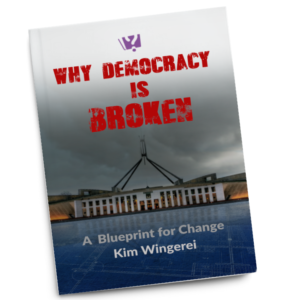
Just as Game of Thrones seems likely to end with a whimper, leaving someone in charge as corrupted by the process of getting there as the psychopath who crumbled under the weight of the rubble that killed the incumbent – Cersei Lannister – the Game of Votes may well end up proving that the more things change, the more they stay the same.
After the last eight months of excruciating political campaigning and the carnage of the penultimate episode of Game of Thrones, series 8, I am ready for them both to end!
Who knows who will end up on what’s left of the Iron Throne in King’s Landing, except it will be someone new. And it’s quite likely there will be someone new moving into The Lodge in Canberra, too.
And there will be blood.
The most popular TV series of all time – Game of Thrones – have been going since 2011, coinciding neatly with the deteriorating performance of the Australian Government. Starting with the backstabbing of Julia Gillard by the mad king himself (aka. Kevin Rudd) which instead of leading to the intended stability ended in the ascension of the even madder king – Tony Abbott – employing his immense talent for destruction into the disaster of a Government that we’ve had for the last six years.
Malcolm Turnbull appeared for a while as the voice of reason – a real life Ned Stark, albeit without his strength of moral purpose. They share a faith of unceremonious be-headings by their less scrupulous “allies”.
Petyr “Littlefinger” Baelish – ordinarily known as Peter Dutton in his electorate of Dickson – set the scene, but was upstaged by The High Sparrow who deftly moved in to take the Liberal Party to the election.

Kings Landing
The latest betting odds indicate that the polls are right, and that metaphorical wildfire will be the end of the High Sparrow and his mean spirited acolytes on Saturday – as life imitates art.
But just as Game of Thrones seems likely to end with a whimper, leaving someone in charge as corrupted by the process of getting there as the psychopath who crumbled under the weight of her rubble in episode 5 – the Game of Votes may well end up proving that the more things change, the more they stay the same.
The big question is if Bill Shorten will have the noble intentions of Jon Snow or will he seek Targaryen vengeance? I like to think the former, but it may well be so with the support of a Varys – the only true independent in Westeros – and more of his kind, with or without balls.
And even channeling Jon Snow, Bill Shorten will still have to contend with not the heads of the other six Kingdoms, but a whole Senate whose composition is anybody’s guess. It will no doubt have its fair share of Baratheons, Boltons and a Wildling or two – maybe even the Death Walker herself – Pauline Hanson – not to mention the ultimate opportunist of no morals: an over-sized Clive “Euoron” Palmer!
But will there be an Arya Stark to keep ‘em honest, someone with the wisdom of Davos, the loyalty of Jorah, the kindness of Gendry or the unassuming intelligence of Samwell Tarly?
Some will have the street-smarts of Tyrion Lannister, too many the devious cunning of a Tyrell.
As much as I welcome the change from the dysfunction of the last few years, I have no illusions that a Labor Government will be the great saviour that many desperately hope for.
No doubt there will be better economic management, after all the incumbent doesn’t even understand its own accounts. There will be a different emphasis on education, on wages growth, on health, aged care and on looking after the less fortunate in general. But unlikely we will see too much change in our inhumane treatment of refugees.
Labor has a real policy and much more aggressive goals set to help tackle the effects of climate change. But once in Government they too will be stymied by the pressures of economic imperatives, too spooked by the nebulous “sovereign risk” to finally kill off coal as we should (and must).
There will be a Federal Independent Commission Against Corruption, but it won’t get the sharp teeth such a body needs. There will be tinkering around the edges of donation reform, but nothing that changes the status quo too much. The recommendations of the Banking Royal Commission may be implemented but watered down by pressure from the banks and the vested interests throughout the bureaucracy.
There will be a referendum on whether we should have an Australian Head of State and hopefully a change of heart to consider the Uluru Statement; maybe even a push for changes to Section 44 of the constitution to put an end to the dual citizen nonsense. But Labor won’t take the risk to start the much needed process of reforming our anachronistic constitution.
A Bill of Rights will remain an illusive dream for those of us who think it a paramount step on the road to a fair and just society with equal opportunities for everyone.
Labor has already made the internal changes necessary to remove the risk of mid-term change of leader, but other than that there will be little changes to the conventions that keeps our democracy beholden to the particracy. Parliament will still be a place of puerile “debate” where being right is much more important than doing right.
Unions will have more of a say – for better and for worse – but there won’t be much change to how business and lobbyists have far too much influence on policy settings and spending. Lack of transparency will continue to be a major obstacle to open and fair governance.
Penny Wong will be a competent Foreign Minister and the long overdue recognition of Palestine should happen, but foreign policy will otherwise stay conservative – focused on protecting Australian interests, not upsetting our allies and supporting the causes of the down-trodden around the world in name only, rarely in deed.
In the end, despite 72 thrilling episodes of fighting for the right to a seat on the throne, at the end of episode 73 of GoT there will be just another queen or king in charge facing the same challenges with only limited will or capacity to change the world of Westeros. In Canberra the faces will be different, the mood will be different, the rhetoric will be different and many of us will welcome the hoped for changes in both ministerial competency and policy realities.
But in less than three short years the Game of Votes will start again.






